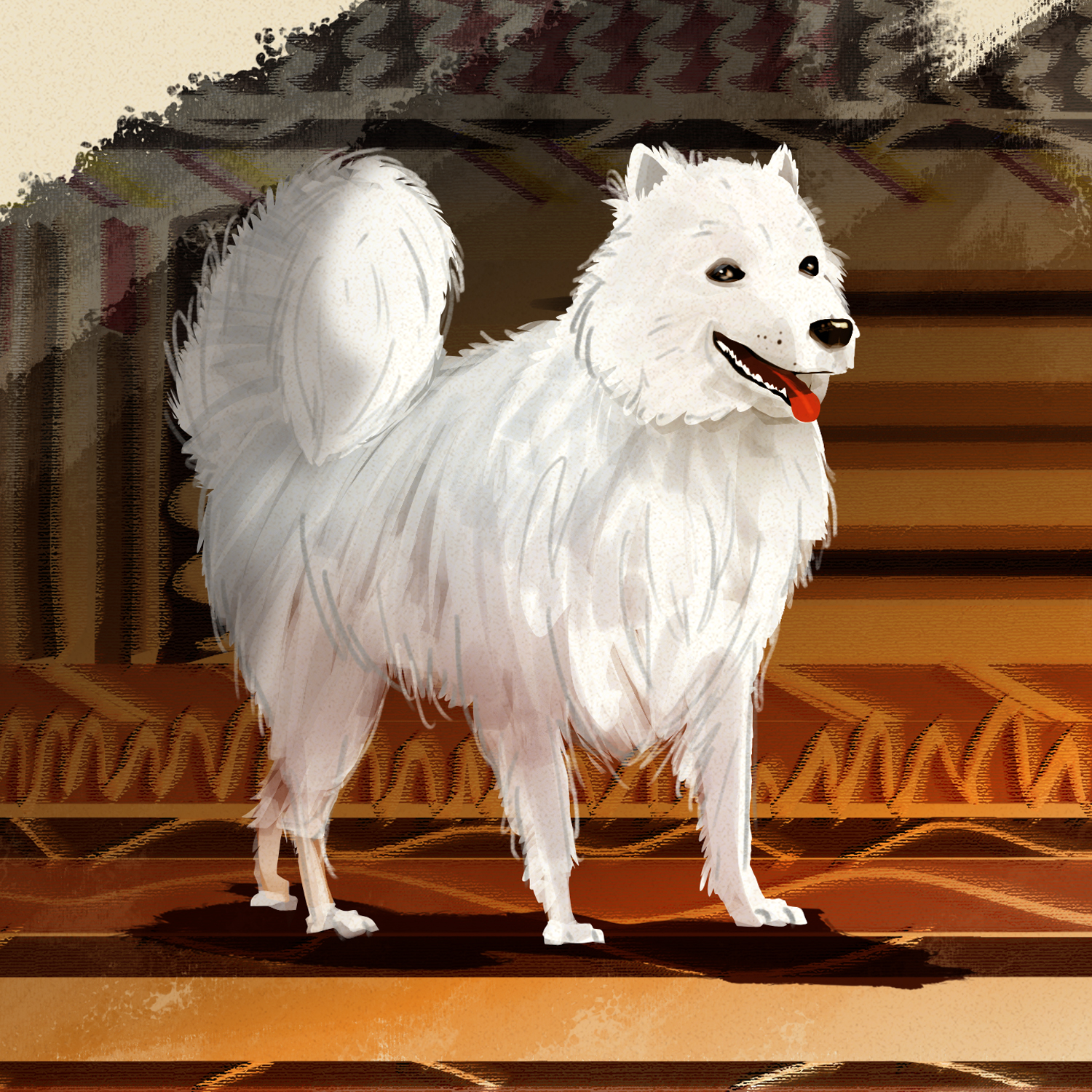
For thousands of years, fluffy white dogs could be found across the Pacific Northwest. Their exceptionally soft, crimpy hair was shorn like sheep’s wool, spun into yarn, and woven into blankets and robes by indigenous women who carefully tended them in communities across Coast Salish territory. But a hundred years ago, the woolly dog quietly vanished. Why?
Today, the only known pelt of this extinct breed is in the collections of the Smithsonian’s National Museum of Natural History, and it might hold some answers. Through collaborate research combining Western science with Indigenous knowledge, we delve into this animal’s genome to learn the real story of the woolly dog’s disappearance.
Guests:
Audrey Lin, evolutionary molecular biologist, research associate at the Smithsonian’s National Museum of Natural History and postdoctoral scholar at the American Museum of Natural History
Logan Kistler, curator of archaeobotany and archaeogenomics in the anthropology department of the Smithsonian’s National Museum of Natural History
Liz Hammond-Kaarremaa, master spinner who studies traditional Salish textiles as a research associate at Vancouver Island University and the Smithsonian’s National Museum of Natural History
Steven Point / Xwĕ lī qwĕl tĕl, grand chief of the Stó:lō Tribal Council, chancellor of the University of British Columbia, former lieutenant-governor of British Columbia, retired judge, and member of the Skowkale First Nation
Debra Sparrow / θəliχʷəlʷət, weaver, artist and knowledge-keeper from Musqueam. Foundational Salish weaving revivalist who, with her sisters, she has worked for decades to rejuvenate and teach traditional Salish weaving.
Violet Elliot / Snu’Meethia, weaver and teacher from Snuneymuxw First Nations living in Cowichan First Nations. She has been weaving for over 28 years.
Melissa (Missy) Hawkins, curator of mammals at the Smithsonian’s National Museum of Natural History
More Episodes
 2024-10-30
2024-10-30
 2024-10-16
2024-10-16
 2024-10-02
2024-10-02
 2024-09-18
2024-09-18
 2024-09-11
2024-09-11
 2024-08-28
2024-08-28
 2024-08-14
2024-08-14
 2024-07-31
2024-07-31
 2024-07-17
2024-07-17
 2024-07-03
2024-07-03
 2024-06-05
2024-06-05
 2024-05-22
2024-05-22
 2024-05-08
2024-05-08
 2024-04-24
2024-04-24
 2024-04-10
2024-04-10
 2024-03-27
2024-03-27
 2024-03-13
2024-03-13
 2024-02-28
2024-02-28
 2024-02-14
2024-02-14
Create your
podcast in
minutes
- Full-featured podcast site
- Unlimited storage and bandwidth
- Comprehensive podcast stats
- Distribute to Apple Podcasts, Spotify, and more
- Make money with your podcast
It is Free
- Privacy Policy
- Cookie Policy
- Terms of Use
- Consent Preferences
- Copyright © 2015-2024 Podbean.com




